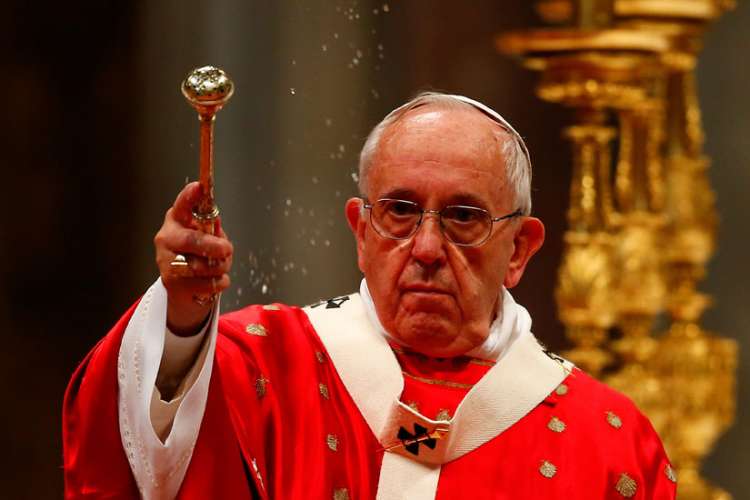The rich who suck the blood of the poor
The day’s first reading, taken from the Letter of Saint James, is a forceful warning to the rich who accumulate wealth by exploiting the people. “Riches in themselves are good,” the Pope explained, but they are “relative, not absolute” goods. He criticized the so-called “theology of prosperity”— according to which “God shows you that you are just if He give you great riches,” saying those who follow it are mistaken. The problem lies in being attached to wealth, because, as the Pope recalled, “You cannot serve both God and riches.” These become “chains” that “take away the freedom to follow Jesus.” In the reading, St James writes, “Behold, the wages you withheld from the workers who harvested your fields are crying aloud; and the cries of the harvesters have reached the ears of the Lord Almighty.”
When riches are created by exploiting the people, by those rich people who exploit [others], they take advantage of the work of the people, and those poor people become slaves. We think of the here and now, the same thing happens all over the world. “I want to work.” “Good, they’ll make you a contract, from September to June.” Without a pension, without health care… Then they suspend it, and in July and August they have to eat air. And in September, they laugh at you about it. Those who do that are true bloodsuckers, and they live by spilling the blood of the people who they make slaves of labour.
The exploitation of labour is a mortal sin
Pope Francis recalled how a young girl once told him about having found a job, working 11 hours a day for 650 euro a month, under the table. And they told her, “If that’s ok with you, take it; if not, get lost. There’s nothing else!” There’s a line of people waiting to take the job. These rich people, he said, “grow fat on their riches”—but the Apostle warns: “You have fattened your hearts for the day of slaughter.” “The blood of all these people that you have sucked,” and on which “you have lived, is a cry to the Lord, it is a cry of justice. The exploitation of the people,” the Pope said, “today is truly a form of slavery.” We might think, he continued, "that slaves no longer exist: they exist. It’s true, people no longer go to Africa to capture them in order to sell them in America, no. But it is in our cities. And there are these traffickers, these people who treat the working people without justice.”
Yesterday, in the Audience, we meditated on the rich glutton and Lazarus. But, this rich man was in his own world, he didn’t realize that on the other side of the door of his house, there was someone who was starving. But this is worse. That rich man, at least, did not realize, and left the other man to die of hunger. But this is worse. This is starving the people with their work for my own profit! Living on the blood of the people. And this is a mortal sin. This is a mortal sin. And this demands a great deal of penance, a great deal of restitution, in order to be converted from this sin.
The funeral of the miser
The Pope also told the story of the death of a miser. The people joked: “The funeral was ruined,” they said. “They couldn’t close the coffin,” because “he wanted to take all that he had with him, and he couldn’t.” “No one can take their riches with them,” the Pope said.
We consider this drama of today: the exploitation of the people, the blood of these people who become slaves, the traffickers of people—and not just those who deal in prostitutes and children for child labour, but that trafficking we might call “civilized”: “I’ll pay you this much, without vacation, without health care, without… everything under the table… But I will become rich!” May the Lord make us understand today the simplicity that Jesus speaks to us of in the Gospel of today: a glass of water in the name of Christ is more important than all the riches accumulated through the exploitation of the people.


